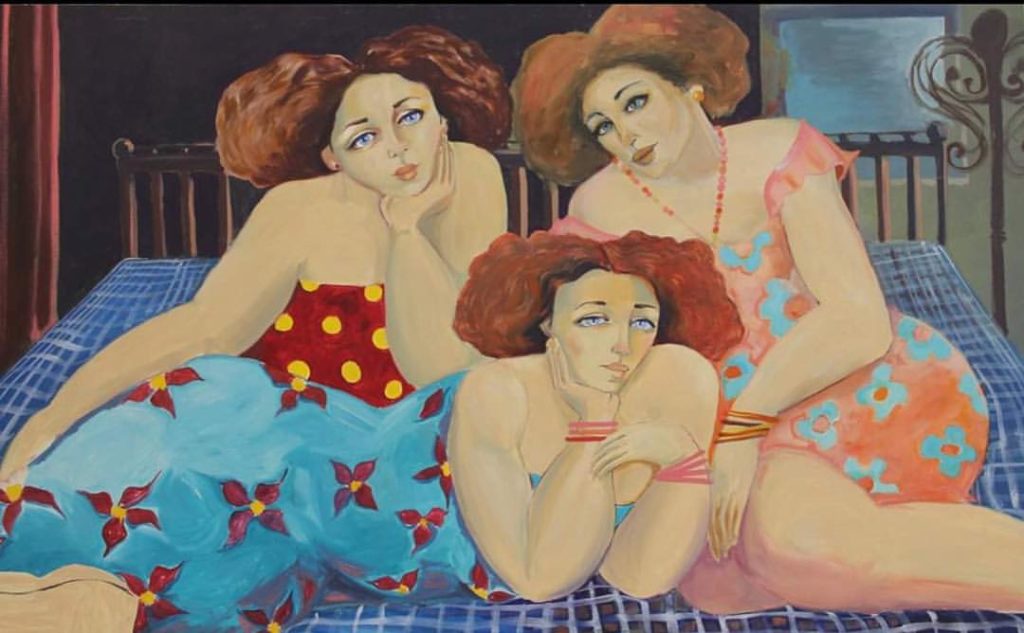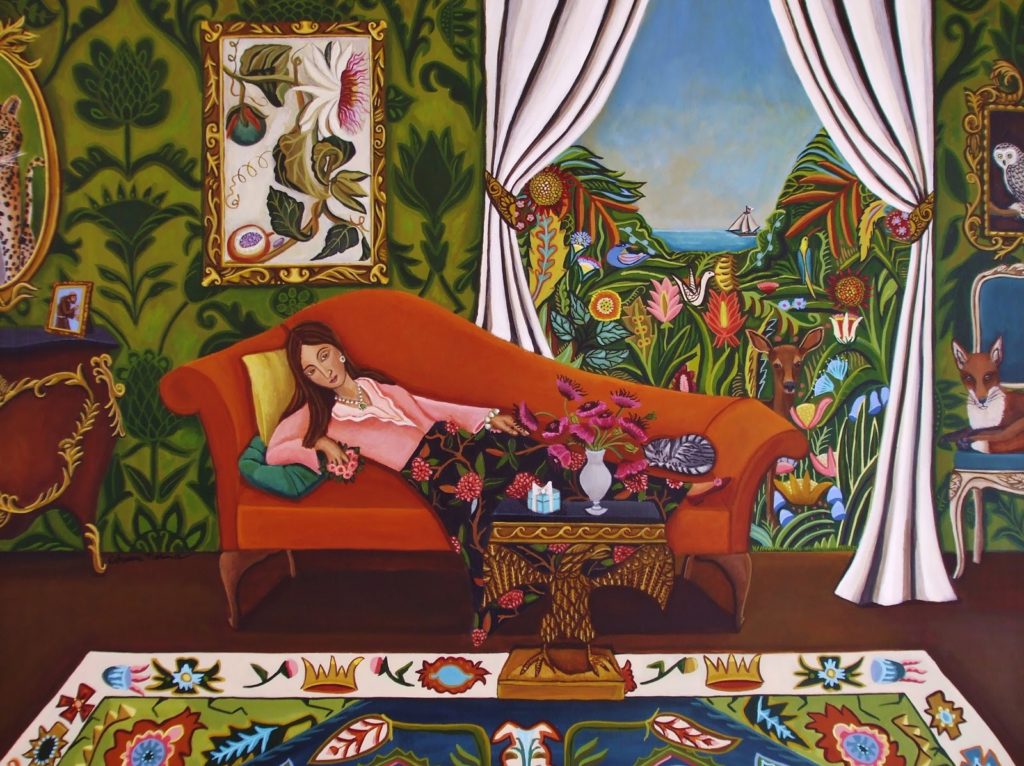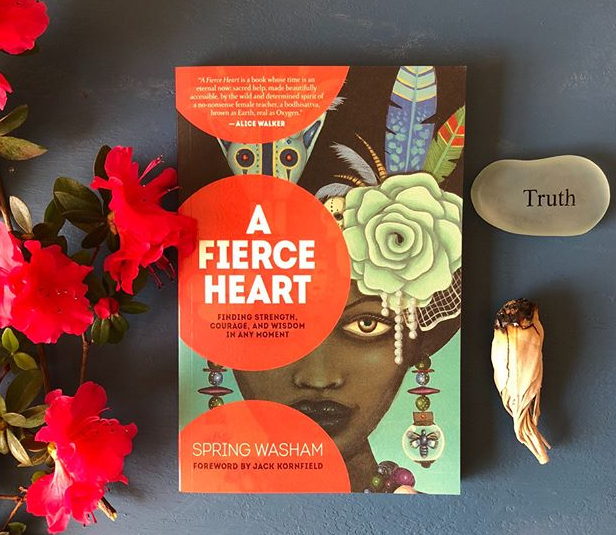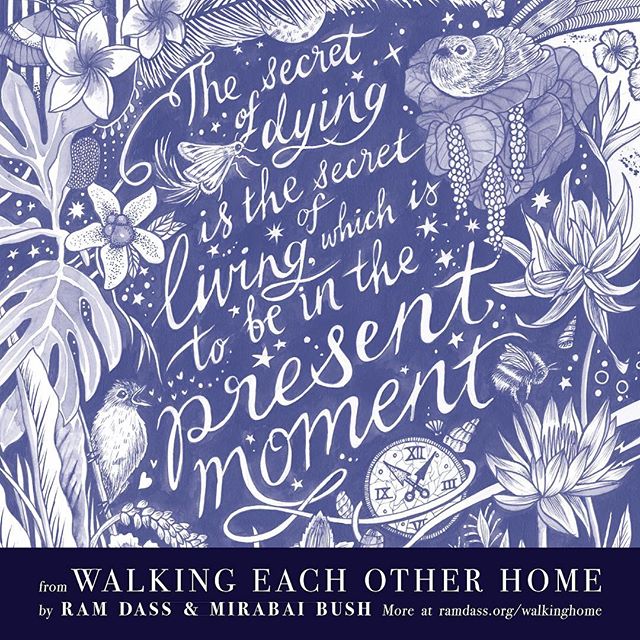More to Wake Up to
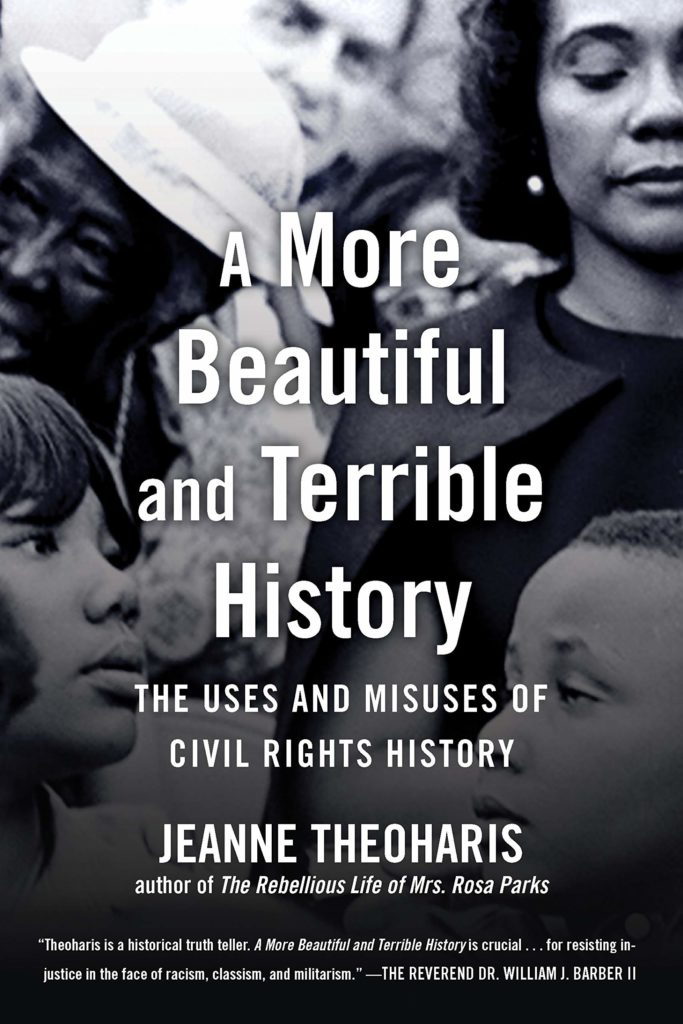 After reading Jeanne Theoharis’ sobering op-ed in the New York Times, What King Said About Northern Liberalism, my CDL Waking Up to Whiteness group has selected for our next discussion Theoharis’ A More Beautiful and Terrible History: The Uses and Misuses of Civil Rights History.
After reading Jeanne Theoharis’ sobering op-ed in the New York Times, What King Said About Northern Liberalism, my CDL Waking Up to Whiteness group has selected for our next discussion Theoharis’ A More Beautiful and Terrible History: The Uses and Misuses of Civil Rights History.
From the publisher: “The civil rights movement has become national legend, lauded by presidents from Reagan to Obama to Trump, as proof of the power of American democracy.
“This fable, featuring dreamy heroes and accidental heroines, has shuttered the movement firmly in the past, whitewashed the forces that stood in its way, and diminished its scope. And it is used perniciously in our own times to chastise present-day movements and obscure contemporary injustice.
“In A More Beautiful and Terrible History award-winning historian Jeanne Theoharis dissects this national myth-making, teasing apart the accepted stories to show them in a strikingly different light.”
***
I expect this will not be an easy read, but I feel ready for it. How about you?
In Pali, “Sati” is Feminine
Imagine my surprise — and delight! — when I read these instructions by Bhikkhu Analayo in his recent book, Satipatthana Meditation: A Practice Guide.
“It can be useful to take into consideration that the word sati in the Pali language is feminine.
“My suggestion would be to relate to sati, to mindfulness, as a feminine quality. In this way, sati can be understood as receptively assimilating with the potential of giving birth to new perspectives.
“Right away from the moment of waking up in the morning our good friend sati can already be there, as if waiting for us. She is ready to accompany us throughout the rest of the day, encouraging us to stay receptive and open, soft and understanding. She never gets upset when we happen to forget her, she is right there with us again.
“Visualizing the practice in terms of a coming back to the presence of a good friend helps to avoid mistaking sati for a forceful type of hyper-attentiveness that requires strained effort in order to be maintained.
“Instead, being in her presence carries the flavors of an open receptivity and a soft alertness to whatever is taking place.”
Reading “Washington Black”
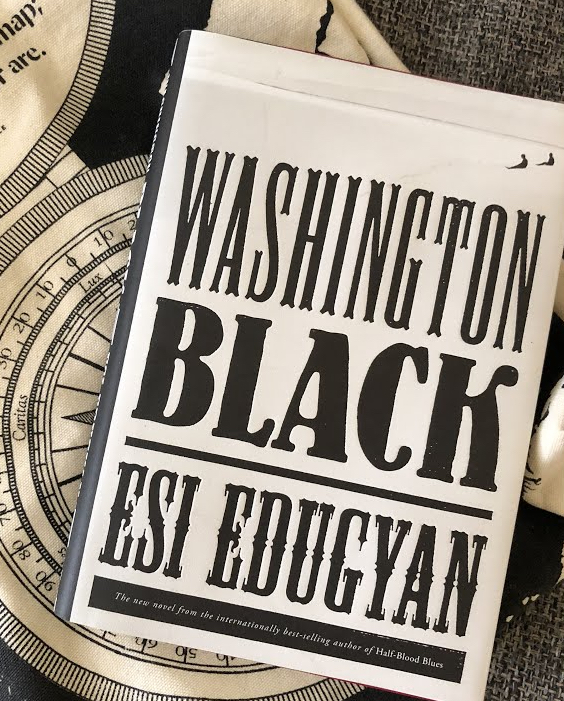 I’m delighted that my “Waking Up to Whiteness” book discussion group has chosen Washington Black, by Esi Edugyan.
I’m delighted that my “Waking Up to Whiteness” book discussion group has chosen Washington Black, by Esi Edugyan.
Here’s an excerpt:
“I might have been ten, eleven years old–I cannot say for certain–when my first master died.
“No one grieved him; in the fields we hung our heads, keening, grieving for ourselves and the estate sale that must follow. He died very old. I saw him only at a distance: stooped, thin, asleep in a shaded chair on the lawn, a blanket at his lap. I think now he was like a specimen preserved in a bottle. He had outlived a mad king, outlived the slave trade itself, had seen the fall of the French Empire and the rise of the British and the dawn of the industrial age, and his usefulness, surely, had passed.
“On that last evening I remember crouching on my bare heels in the stony dirt of Faith Plantation and pressing a palm flat against Big Kit’s calf, feeling the heat of her skin baking up out of it, the strength and power of her, while the red sunlight settled in the cane all around us. Together, silent, we watched as the overseers shouldered the coffin down from the Great House. They slid it rasping into the straw of the wagon and, dropping the rail into place with a bang, rode rattling away.
“That was how it began: me and Big Kit, watching the dead go free.”
***
This is going to be good!
None of This is Spare Time
I’ve just run across a wonderfully titled book — No Time to Spare: Thinking About What Matters, a collection of essays by Ursula K. Le Guin — which I’m really trying to savor and take my time with (so to speak), but it’s such a delightful read that I’m sure I’ll come to the end way before I’m ready to. (Isn’t that always the way it is!)
Here’s a excerpt from the first essay in the collection:
“I got a questionnaire from Harvard for the sixtieth reunion of the Harvard graduating class of 1951. Of course my college was Radcliffe, which at that time was affiliated with but wasn’t considered to be Harvard, due to a difference in gender; but Harvard often overlooks such details from the lofty eminence where it can consider all sorts of things beneath its notice. Anyhow, the questionnaire is anonymous, therefore presumably gender-free; and it is interesting.
“The people who are expected to fill it out are, or would be, almost all in their eighties, and sixty years is time enough for all kinds of things to have happened to a bright-eyed young graduate….
“Question 14: ‘Are you living your secret desires?’… I finally didn’t check Yes, Somewhat, or No, but wrote in ‘I have none, my desires are flagrant.’
“But it was Question 18 that really got me down. ‘In your spare time, what do you do? (check all that apply).’ And the list begins: ‘Golf…’
“Seventh in the list of twenty-seven occupations, after ‘Racquet sports’ but before ‘Shopping,’ ‘TV,’ and ‘Bridge,’ comes ‘Creative activities (paint, write, photograph, etc.).’
“The key words are spare time. What do they mean?
“To a working person — supermarket checker, lawyer, highway crewman, housewife, cellist, computer repairer, teacher, waitress — spare time is the time not spent at your job or at otherwise keeping yourself alive, cooking, keeping clean, getting the car fixed, getting the kids to school. To people in the midst of life, spare time is free time, and valued as such.
“But to people in their eighties? What do retired people have but ‘spare’ time?
“I’m not exactly retired, because I never had a job to retire from. I still work, though not as hard as I did. I have always been and am proud to consider myself a working woman. But to the Questioners of Harvard my lifework has been a ‘creative activity,’ a hobby, something you do to fill up spare time. Perhaps if they knew I’d made a living out of it they’d move it to a more respectable category, but I rather doubt it.
“The question remains: When all the time you have is spare, is free, what to do you make of it?….
“The opposite of spare time is, I guess, occupied time. In my case I still don’t know what spare time is because all my time is occupied. It always has been and it is now. It’s occupied by living.
“An increasing part of living, at my age, is mere bodily maintenance, which is tiresome. But I cannot find anywhere in my life a time, or a kind of time, that is unoccupied.
“I am free, but my time is not.
“My time is fully and vitally occupied with sleep, with daydreaming, with doing business and writing friends and family on email, with reading, with writing poetry, with writing prose, with thinking, with forgetting, with embroidering, with cooking and eating a meal and cleaning up the kitchen, with consulting Virgil, with meeting friends, with talking with my husband, with going out to shop for groceries, with walking if I can walk and traveling if we are traveling, and sitting Vipassana sometimes, with watching a movie sometimes, with doing the Eight Precious Chinese exercises when I can, with lying down for an afternoon rest with a volume of Krazy Kat to read and my own slightly crazy cat occupying the region between my upper thighs and mid-calves, where he arranges himself and goes instantly and deeply to sleep.
“None of this is spare time. I can’t spare it. What is Harvard thinking of? I am going to be eighty-one next week. I have no time to spare.”
Forge Your Fierceness!
In A Fierce Heart: Finding Strength, Courage, and Wisdom in Any Moment, Spring Washam writes:
“The Buddha said that in a human life, we experience ten thousand joys and ten thousand sorrows. None of us is free from either.
“We have to open up to everything in order to transform it. We become willing to use every condition, challenge, and misery as a teaching, no matter how bad it feels or how dark it gets…
“When we allow the shadows and the suffering in, they become the vehicles for our healing. Heartbreak, loss, and the worst betrayals become the fuel for transformation. We can learn how to use the mud and muck of our lives to wake up and grow.
“When it feels impossible, that is exactly the time when we need a fierce heart the most. Let it all burn in the cosmic fires, so you can forge your fierceness and grow stronger and wiser.
“No matter what you’ve been through, now is the starting point, so if you’re feeling hopeless or at a loss, please trust me when I say your greatest moments are yet to come.”
***
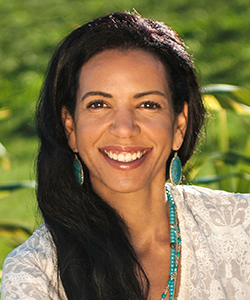 Forge your fierceness with Spring Washam right here in St. Louis, Nov 1-4.
Forge your fierceness with Spring Washam right here in St. Louis, Nov 1-4.
Rates begin at $5.
Don’t miss it!!!
For more information, click here.
Perhaps to Bloom
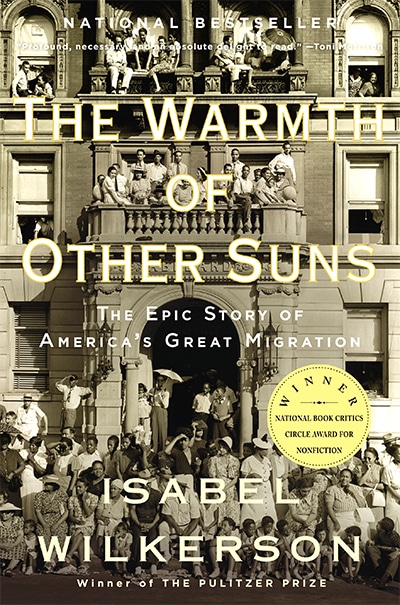 The next book my CDL “White Awake” discussion group will be reading is The Warmth of Other Suns: The Epic Story of America’s Great Migration, by Isabel Wilkerson.
The next book my CDL “White Awake” discussion group will be reading is The Warmth of Other Suns: The Epic Story of America’s Great Migration, by Isabel Wilkerson.
It got rave reviews when it came out in 2010, and it won tons of awards, including the National Book Critics’ Circle Award for Nonfiction and the Pulitzer Prize.
But I didn’t read it back then. I remember hearing it mentioned in favorable terms, but I really wasn’t paying attention. Probably because I didn’t think it had anything to do with me.
But that was then.
I’m a little more awake now.
***
Epigraph:
(taken from an early edition of Black Boy, by Richard Wright)
I was leaving the South
To fling myself into the unknown….
I was taking a part of the South
To transplant in alien soil,
To see if it could grow differently,
If it could drink of new and cool rains,
Bend in strange winds,
Respond to the warmth of other suns
And, perhaps, to bloom.
***
All Day with Analayo…and the Buddha
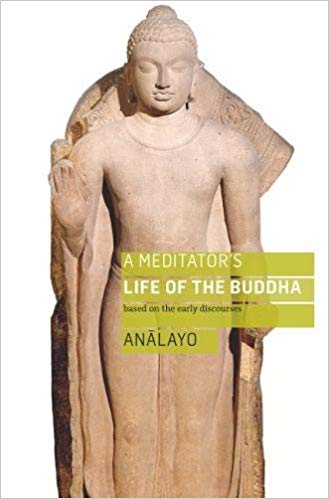 Tomorrow, I’ll be “attending” a day-long retreat led by Bhikkhu Analyao (!) — which will be at Spirit Rock — but they’re live-streaming it, so if you sign up here, you can attend on-line for FREE!!!
Tomorrow, I’ll be “attending” a day-long retreat led by Bhikkhu Analyao (!) — which will be at Spirit Rock — but they’re live-streaming it, so if you sign up here, you can attend on-line for FREE!!!
(It’s from 11:30 am to 7:00 pm St. Louis time. But I think if you register before it starts, you’ll have access to the recorded video for a couple of weeks.)
According to the Spirit Rock website: “During this day, Bhikkhu Analayo will read and comment on excerpts from his recent book, A Meditators Life of the Buddha, followed by guided meditation instructions.
“The instructions are aimed at experienced practitioners and presuppose meditative expertise as well as readiness to face our own mortality, as one of the teachings will be on recollection of death. Participants are encouraged to read A Meditator’s Life of the Buddha prior to the retreat [available as a FREE pdf here].”
***
I’ve just about finished the book, which I really like. (It’s a LOT less academic than most of his previous books.) Here’s what Jack Kornfield says in the Introduction:
A common misunderstanding found in modern mindfulness teachings is that by simply observing experience with mindfulness all will be transformed. But there is more to mindfulness than this.
The wisdom in this book helps us to realize that wise mindfulness recognizes what is present, and then guides us from unwholesome to wholesome states. We can learn to see clearly and then, in response, tend, direct, refine, and transform our own mind.
Developing a mind and heart suffused with wisdom and metta allows us to live with freedom wherever we are. Bhikkhu Analayo shows us how the Buddha embodied this spirit, ever responsive to those around him. There is an immediacy, decorum, grace, open-handedness, and profound compassion in his tending of all he touched. We are invited to bring these same qualities alive in our own Dharma life.
Read this book slowly.
Savour it and let it sink in.
Make it a manual of practice….
May the teachings, stories, and practices here bring you the blessings of the Buddha.
***
Sadhu. Sadhu. Sadhu.
Conversations on Loving and Dying
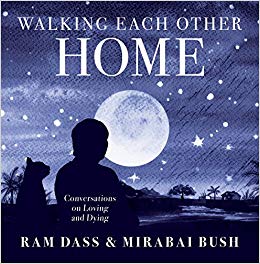 Walking Each Other Home: Conversations on Loving and Dying by Ram Dass and Mirabai Bush is now available!!! It’s such a beautiful little book. And quite intimate. Mirabai recorded the audio version — so of course I ordered it — although I don’t even own a CD player!
Walking Each Other Home: Conversations on Loving and Dying by Ram Dass and Mirabai Bush is now available!!! It’s such a beautiful little book. And quite intimate. Mirabai recorded the audio version — so of course I ordered it — although I don’t even own a CD player!
Here’s a sample: If I’m going to die, the best way to prepare is to quiet my mind and open my heart. If I’m going to live, the best way to prepare is to quiet my mind and open my heart.
*** That’s always the best. ***
Whatever You Get Interested In…. Gets Interesting.
 I’m back now from the Concentration retreat, which was VERY. VERY. INTERESTING.
I’m back now from the Concentration retreat, which was VERY. VERY. INTERESTING.
I wish you could all have been there. At least I can give you a peek:
In one of my favorite talks from the retreat — the “Enjoyment” talk — Sally Armstrong references Ajahn Sucitto’s lovely little book, Samadhi is Pure Enjoyment.
Here’s a link to the talk: Developing a Skillful Relationship to Happiness.
And here’s an excerpt from the book:
“…The idea of focusing is to settle, to focus in a way in which you feel settled and easy, not confused or sleepy. That’s the only point where you’ll experience a steady breath. This is really where your awareness can settle. Which means that it’s a matter of attitude as well as a physical point.
“Then you’ll find yourself settling in. You’ll begin to experience some kind of sign — the quality of openness without attachment has a characteristic feel, such as brightness. Listen in to that (if it’s something you experience through listening) as if you’re listening to the listening. If it’s tactile, feel it. If it has an emotional base, resonate with it.
“It is beautiful. Notice the beauty. What is this beauty? It’s where the mind feels gently delighted and uplifted. This is rapture — the threshold of samadhi….
“We can’t hold this beauty of rapture. A relationship to beauty is something akin to devotion. We don’t hold it; we’re aware of it in a way that’s both gladdened and respectful. We have to give ourselves to it. Of course, this is something we’re not used to; it’s something that requires trust.
“Trust your body first of all. The body is something that can be trusted much more than the mind. As one learns to trust, one learns to receive the blessings of what is good and conducive to the heart’s welfare. This brings joy….
“I think of ‘enjoyment’ as ‘receiving joy’; and samadhi as the art of refined enjoyment. It is the careful collecting of oneself into the joy of the present moment.
“Joyfulness means there’s no fear, no tension, no ‘ought to’. There isn’t anything we have to do about ti. So there is stillness. It’s just this.”
This Wide Human Stream
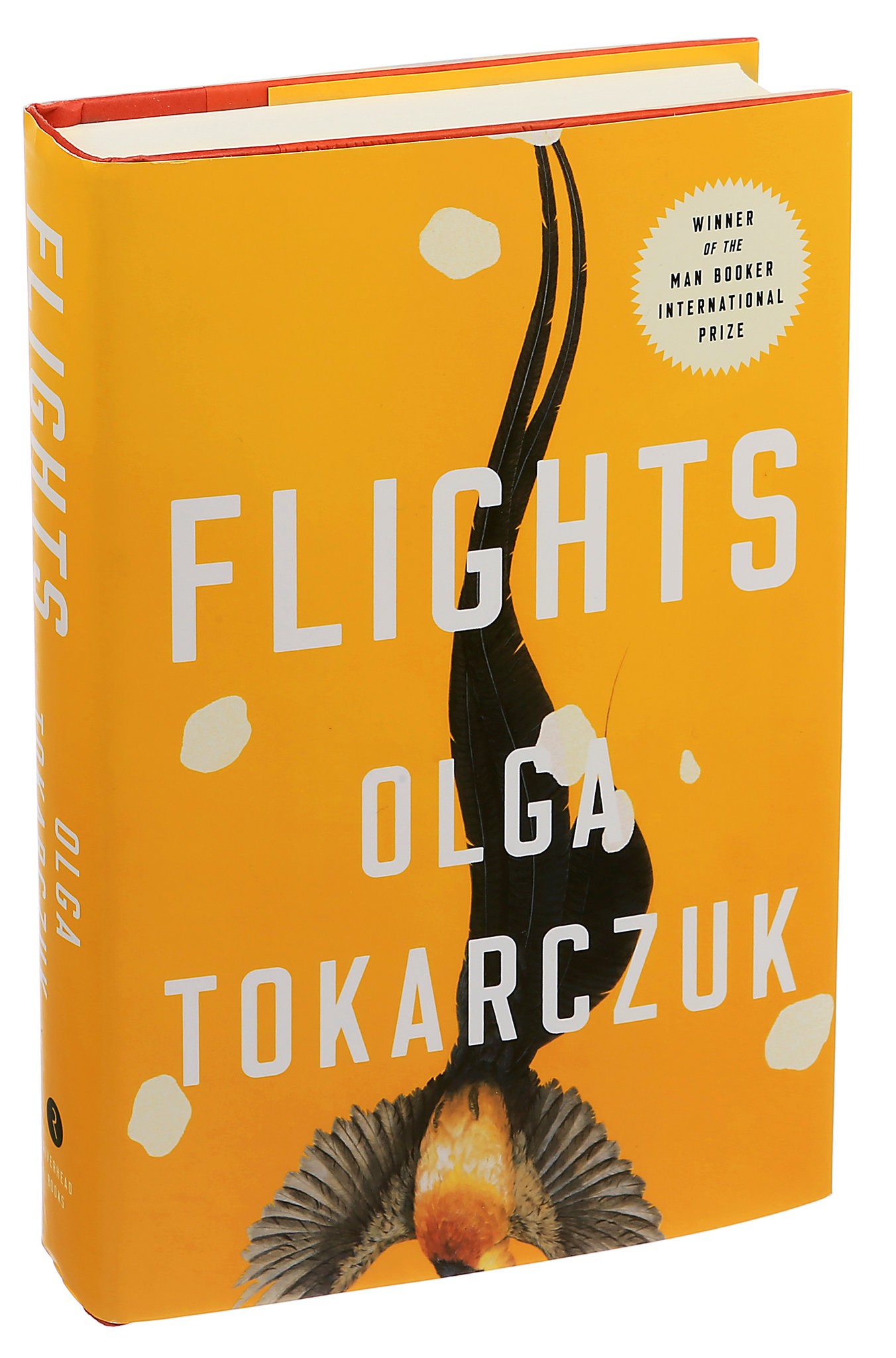 Getting everything done before I catch a flight to California to go on retreat appears to be taking quite a bit longer than I had expected, so I won’t be posting again until sometime after I get back. (I return late on Aug 30.)
Getting everything done before I catch a flight to California to go on retreat appears to be taking quite a bit longer than I had expected, so I won’t be posting again until sometime after I get back. (I return late on Aug 30.)
Usually before going on retreat, I leave you with a selection from my favorite inner travelogue, Invisible Cities, by Italo Calvino. This time I’d like to offer something similar, but different — from Flights, by Olga Tokarczuk, which won the Man Booker Prize this year and was just released today:
The Bodhi Tree
I met a person from China. He was telling me about the first time he flew to India on business; he had lots and lots of important individual and group meetings. His company produced quite complicated electronic devices allowing blood to be conserved longer-term, and allowing organs to be safely transported, and now he was negotiating to open up new markets and start some Indian subsidiaries.
On his final evening there he mentioned to his Indian contractor that he had dreamed since childhood of seeing the tree under which the Buddha had attained enlightenment — the Bodhi tree. He came from a Buddhist family, although at that time there could be no public mention of religion in the People’s China. But later, once they could avow whatever faith they wished, his parents unexpectedly converted to Christianity, a Far Eastern variety of Protestantism. They felt that the Christian God might come in handier to His followers, that He would be, let’s be honest, more effective, and it would be easier with Him to get some money and get set up. But this man did not share that view and kept the Buddhist faith of his ancestors.
The Indian contractor understood the man’s desire. He nodded and topped off his Chinese colleague’s drink.
In the end they all got pleasantly inebriated, getting out all the tensions of signing contracts and negotiations. With the last of their strength, wobbling on swaying legs, they went into the hotel sauna to sober up, since in the morning they still had work to do.
The following morning a message was delivered to his room — a little note with just one word: “Surprise.” Clipped to it the business card of his contractor. In front of the hotel stood a taxi, which now conveyed him to a waiting helicopter. After a flight of less than an hour the man found himself in the sacred spot where, beneath a great fig tree, the Buddha had attained enlightenment.
His elegant suit and white shirt vanished into the crowd of pilgrims. His body still preserved the bitter memory of alcohol, the heat of the sauna, and a rustle of papers signed in silence on the glass surface of the modern table. A scraping of a pen that left behind his name. Here, however, he felt lost, and helpless as a child. Women who came up to his shoulder, colorful as parrots, pushed past him in the direction this wide human stream was flowing. Suddenly the man was frightened by the thing that he repeated as a Buddhist several times a day, when he had time — the vow. That he would try to bring with his prayers and actions all sentient beings to enlightenment. Suddenly this struck him as utterly hopeless.
When he saw the tree, he was — to tell the truth — disappointed. He had not a thought in his head, nor any prayers. He paid the place its due homage, kneeling many times, making substantial offerings, and about two hours later, he returned to the helicopter. By afternoon he was back in his hotel.
Under a stream of water in the shower that washed from his body the sweat, dust, and strange sweetish smell of the crowd, the stalls, the bodies, the ubiquitous incense, and the curry people ate with their hands off paper trays, it occurred to him that every day he was witness to what had shaken Prince Gautama so: illness, old age, death. And it was no big deal. It produced no change in him; by now, to tell the truth, he’d grown inured to it. And then, drying himself off with a fluffy white towel, he thought he wasn’t even sure he truly wished to be enlightened. If he really wanted to see, in one split second, the whole truth. To peer inside the world as though by X-ray, to glimpse it in the skeletal structure of a void.
But of course — as he assured his generous friend that same evening — he was extremely grateful for this present. Then from the pocket of his suit coat he carefully extracted a crumbled leaf, which both men inclined over in rapt, pious attention.
***
See you in September!

